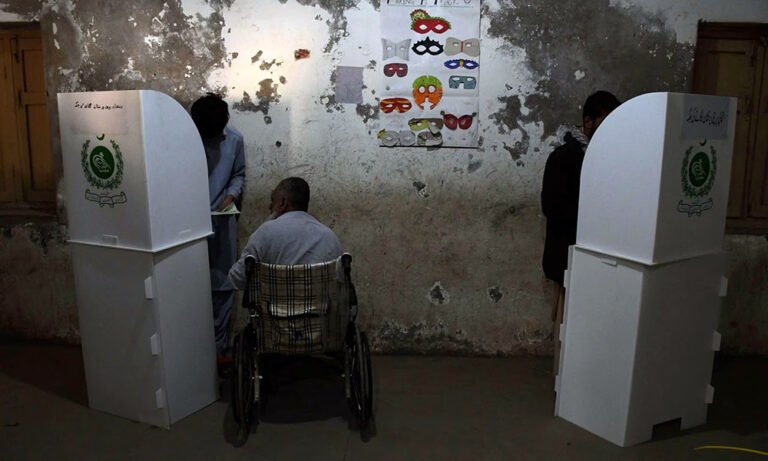(WNAM Monitoring): Pakistan’s general election results showed a tight race between the country’s major political parties, with early counts indicating a neck-and-neck competition, Reuters reported on Friday.
Unusual delays in vote counting were attributed by the government to the suspension of mobile phone services, adding a layer of complexity to an already polarized political landscape.
The country, grappling with economic turmoil and escalating militant violence, faced challenges compounded by the delayed election results. A deeply divided political environment further heightened tensions as Pakistan navigated through a critical juncture in its democratic process.
Zafar Iqbal, a special secretary at the Election Commission of Pakistan (ECP), cited an “internet issue” as the cause behind the delay in releasing results, underscoring the technical hurdles encountered during the electoral process.
The government’s decision to suspend mobile phone services as a security measure ahead of the election contributed to the disruptions in communication, with partial resumptions being initiated as reported by Reuters.
Initial results from the Election Commission of Pakistan (ECP) revealed outcomes for only 12 out of 265 contested parliamentary seats by early Friday morning. Among these, supporters of imprisoned cricket star Imran Khan secured five seats as independents, while the Pakistan Muslim League (Nawaz) (PML-N) led by former Prime Minister Nawaz Sharif claimed four seats.
The political arena saw significant participation from the Pakistan Peoples Party, led by Bilawal Bhutto Zardari, garnering success in three parliamentary seats, as reported by Reuters.
The electoral battleground primarily focused on candidates affiliated with Imran Khan’s Tehreek-e-Insaf (PTI) party and Nawaz Sharif’s PML-N, with analysts speculating on the influence of the powerful military in shaping the outcome.
Despite ongoing counting, a conclusive outcome remained elusive, with uncertainties prevailing over the formation of a clear majority government. Analysts anticipated a protracted process before a definitive picture emerged.
Nawaz Sharif dismissed speculation regarding the likelihood of a coalition government, emphasizing the importance of securing a clear majority to ensure effective governance, particularly in addressing the nation’s pressing challenges.
Stringent security measures were implemented across Pakistan, with the deployment of thousands of troops to safeguard polling stations and maintain order during the electoral process, Reuters reported.
Despite heightened security measures, incidents of violence marred the electoral proceedings, resulting in casualties, including civilians and security personnel, across various regions of the country.
Concerns raised by international observers, including the United States and the United Nations, highlighted apprehensions regarding restrictions on freedom of expression and assembly, particularly related to internet and mobile communications.
With the electoral outcome poised to shape Pakistan’s trajectory amidst economic challenges and security threats, the prospect of forging ahead without a clear majority government underscores the complexities ahead, particularly in negotiating a new bailout program with the International Monetary Fund (IMF) to address pressing fiscal concerns.


